Veterans of the 1893 Occupation of Matabeleland
Much of the material included in this article is taken from a presentation copy of Occupation of Matabeleland: A Souvenir that was prepared by The Fortieth Anniversary Celebration Committee. There were celebrations in November 1933, forty years since the Occupation of Matabeleland.
Rhodes pays tribute at Bulawayo on 19 December 1893
Behind Rhodes and his audience were the blackened ruins of Lobengula’s house and kraal. Lobengula’s death was then unknown, as was the fate of Allan Wilson and his men.
Below are some extracts of Rhodes’ speech on that day:
Doctor Jameson, Officers and men of the various Columns, I have to thank you for the excellent work you have done and I assure you I fully appreciate the great task you have accomplished. I know how difficult the task has been, for, as you are probably aware, one great military authority at all events gave it as his opinion that ten thousand men would be required to do the job, which you, people of Mashonaland have done with somewhere about nine hundred. We also know what prophecies - very gloomy prophecies - were indulged in as to what your fate would be and what the many pessimists said would be the result.
Well, now we know the result. You have been able, with the cooperation of the Bechuanaland Border Police, to conquer Matabeleland. As you well know, we had no desire to interfere, but interference was forced upon us. You remember at Victoria how the Mashonas in your employ were murdered on our ground, when we were quietly carrying on our mining operations. It is true, of course, that the Matabele said they would kill none of the white masters, but human beings could not stand their servants being slaughtered under their eyes, while appealing to them for protection, even if the savages did say they would not actually kill the white masters. Therefore, we took measures to ensure the safety of our people there. Of course, no offensive operations could be undertaken without the direct sanction of the Home government. When at length this sanction was given, we proceeded to punish the savage onslaught on the inhabitants of Victoria, and the fact remains that what was put down as work for ten thousand men, has been done by far less than a thousand. This must be the greatest satisfaction for you as well as to myself.
On the attitude of some English opinions to the occupation of Matabeleland he said:
You would have thought the English would have been satisfied. On the contrary, you have been called freebooting marauders, bloodthirsty murderers and so on; but I know it is not by the people of England as a whole, but only by a section of them. I am as loyal an Englishman as anyone can be, but I cannot help saying that it is such a conduct that alienates colonists from the mother country.
The actual fate of the Allan Wilson patrol was not known at the time and he said:
It is unfortunate, however, that our pleasure in a successful undertaking has been marred by - I will not call it a disaster - a sad uncertainty; but there is still much ground for hope for those whom we miss today.
Wilson’s comrades, especially those from Victoria, wanted to search for him and Rhodes said:
All of you have volunteered to go and ascertain reliably their actual fate, but your offer to go has been declined, because I may tell you it’s acceptance would be of no benefit. We have sent out native scouts to scour the whole country and obtain information, no advantage could be gained by our missing friends or yourselves.
He reminded his listeners of the risks they would encounter.
…to the very heavy rains of the present season and to the fire of scattered groups of natives in the bush. I feel the sadness of the thing myself if it should turn out to be a disaster, but as I have said, there is ground for hope. They are colonists, well used to both bush and natives and so, until we know the worst, let us keep hopeful. We have this consolation that you of Major Forbes’ party are back here with us. You have returned with the loss of one man only and you have shown us how the Matabele nation has been destroyed. Although they were there in thousands, one hundred and thirty of you marched through them and on your return no attempt was made by them to follow you. They did not follow you and the King has gone and with him his young men have gone also, and now the time has come for you to disperse and select your ground.
In discussing their promised rewards for joining the Columns and his return to Cape Town to discuss with the High Commissioner for Southern Africa, Sir Henry Brougham Loch, he said:
We will certainly have to deal with your grants of land without loss of time. It is your right; for you have conquered the country. We have opponents who talk about the land and who talk a great deal of nonsense too. Do they think you have left everything and run the risk that everyone said you were running - which was that you were all going to be slaughtered - for what? Let us say a farm. What is its present value? Say £40. Then am I to be told that you left your occupation and your employment and took the risk of being shot for the value of a farm worth £40. The thing is ridiculous. No, the reason you came was that you knew your property in Mashonaland was worthless unless the Matabele were crushed. You found you had no choice other than to fight or leave the country of your adoption. What I do know is that it was impossible to deal with Mashonaland while barbarism had the upper hand.
Rhodes continued his tribute to the Officers and men of the Columns:
I read in the newspapers what Mr Rhodes has done and what he is not done and I must tell you I regret standing in what I may call stolen clothes. Everything done in regard to your campaign has been done by Dr Jameson and yourselves, with the cooperation of the Bechuanaland Border Police. The future will have many obligations, but there is one thing that pleases me most and that is I must use my brains in getting fresh capital here for railways and public works to found a state south of the Zambezi, which I hope will be one of the largest and at the same time one of the richest in South Africa.
In Cape Town on 6 January Rhodes again paid tribute to the Officers and men of the Columns
You cannot stop civilization going into the interior and the civilization that has gone into the interior has been that of your own people.
With whom did we fight the Matabele? Well, really, it is the most amusing thing you ever heard of. The gentlemen who volunteered to destroy the Matabele power were butchers: yes, and bakers too, and men in stores and men connected with business in this country. Fortunately, a number of them had had volunteer training. They left their different pursuits and said, ‘We must settle the question or clear out of the country.’ And the extraordinary thing is that these men went in with the column of nine hundred men and did the business. My views are changed, Mr Mayor. When I go and buy something in Adderley street now - I hope you will not be angry with me - I know the man that is across the counter and is selling the article to me will, if the occasion requires it, with his knowledge and his training, do his duty.
The whole thing is most extraordinary. When I arrived in Salisbury, out of about fifteen hundred people at the outside - and I think that is exaggerated – six hundred and fifty had gone to the front and when I asked those who were left why they had not gone, they told me that it simply meant the closure of their business and they were in positions they could not lose. But what they had done was to allow every member of their industry to go. These few men went from these two spots, Victoria and Salisbury, to face a power that was supposed to be nearly equal to the Zulu and with the general idea that we should never see them again. They went through, they won the position and they occupied Bulawayo. But do remember in consideration of that effort that you must not take only the two fights when they succeeded, but you must take the daily and nightly terror that the Matabele would be down on them at any moment.
We conducted the campaign with the greatest humanity. I am prepared to submit our conduct to any Board, even a Board of the Aborigines Protection Society…
Some of the Veterans of the 1893 Salisbury and Victoria Columns still alive in 1933

L.T.H. Bischoff and son W. Bisset E.E. Bradfield Major F.R. Burnham
Louis

W.H. Butcher Capt G.W. Cameron-Smith Teddy Campbell Jack Carruthers
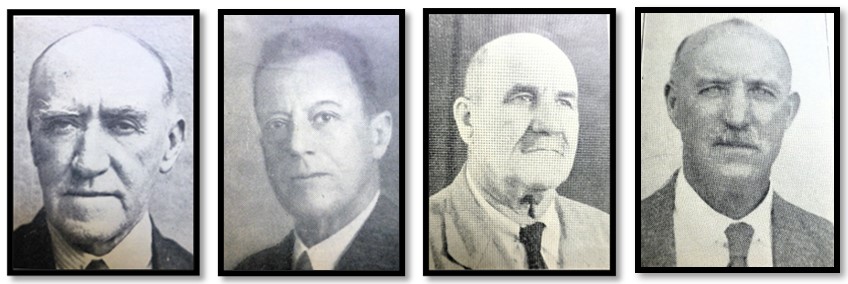
J.C. Coghlan W. Collier H.R. Cumming W.W. Cummins

G.A. Cooke R.G. Davies J.A. Denn D. Dollar 
F. Dreyer J.J. Felix P.B. Fletcher J. Darg Fraser

D.G. Gisborne P. Gwynn A.G. Haddingham H.T. Harrington

A.G. Hay G.T.F. Hickey Sir Melville Heyman L.F. Herbert
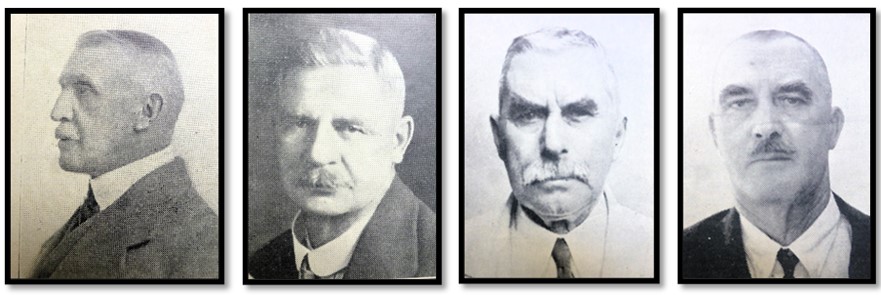
Capt A.J. Hore G.T. Horton Major W. Howard D.S.O. G.F. Hunt
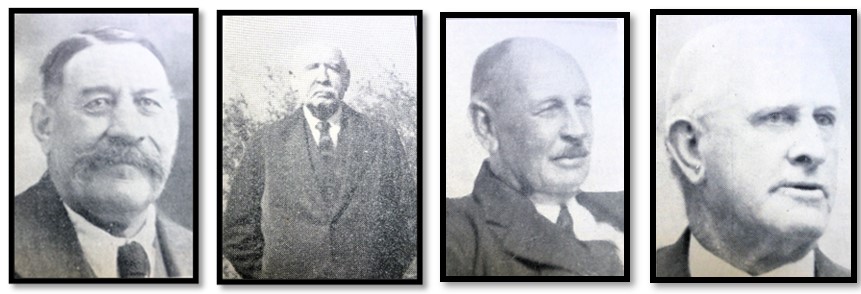
J. Jamieson J. Kernaghan H. Lovemore J.H. Lucas
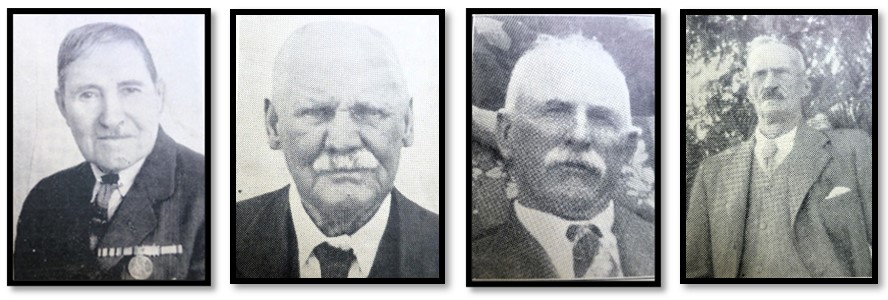
James Lyall W.P. Lynch A. Main F.O. Mallet 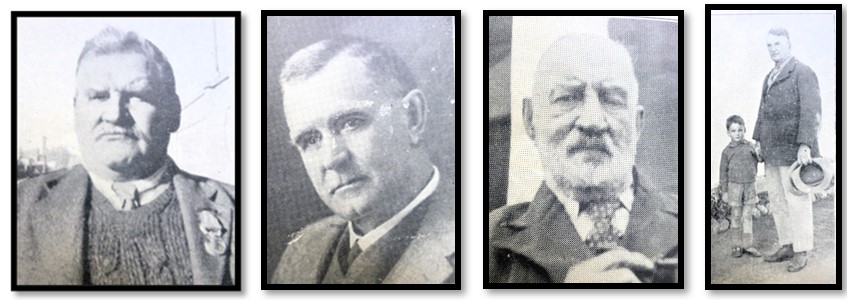
A. McLaren Hon H.U. Moffat C.M.G. C. Mosenthal L.N. Papenfus & son
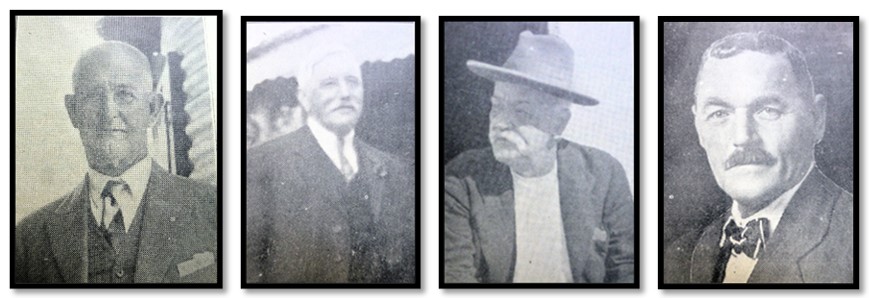
F.D.A. Payne W. Posselt W.H. Potbury Capt A. Pyke

T.W. Quested G.H. Rattray H.J. Renders W.P.N. Rowse

R.C. Rogers C. Rutherford J.B. Scott E. Seale

Gilmour Southey Capt Smuts H.A. Shepherd J. Squair
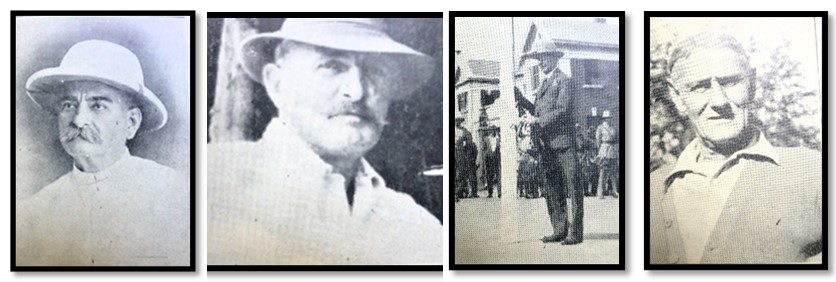
Vere Stent G.E. Storey Lieut Tyndale-Biscoe M.E. Weale
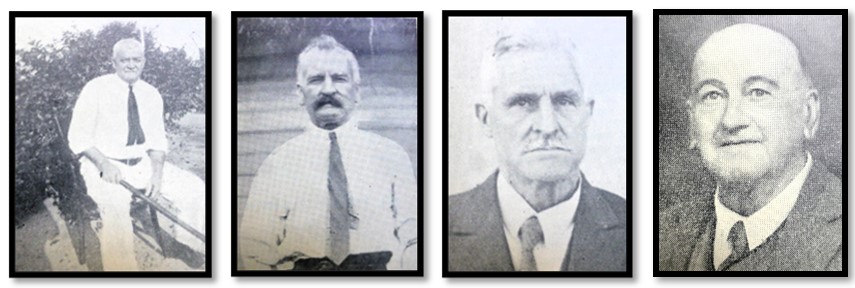
C.W. Tyler W.E. Wilkinson H.H. Williams T.O. Willows

J.A. Wilson Albert Wilson F.R. ‘Matabele’ Wilson G. Wise H.J. Windell and sister Barbara
The British South Africa Company Medal (1890–97)
All the men above would have been entitled to the British South Africa Company Medal, but without the clasp, with the campaign (Matabeleland 1893) inscribed on the reverse.
Queen Victoria approved the medal in 1896 for the colonials who took part in the Occupation of Matabeleland (First Matabele War) of 1893. In 1897, the same medal (i.e. a circular silver medal, 36 mm in diameter with the same ribbon bar) was awarded to those taking part in the two rebellions of the Second Matabele War (Umvukela) in 1896 and in Mashonaland (First Chimurenga) in 1897.
The Orders of the Day were: “The Queen has been graciously pleased to approve of a medal being granted by the British South Africa Company to all officers, non-commissioned officers and men of the Regular Forces, Bechuanaland Border Police and British South Africa Company’s Forces who were employed in connection with the operations in Matabeleland between the 16th of October and the 24th of December 1893.”
In 1927, the Southern Rhodesia government issued the same medal but with a new clasp to those who served in the Pioneer Column of 1890.
The four clasps issued were:
- Matabeleland 1893 (Only awarded with the 1927 medal. Originally recipients received the medal without a clasp, with the campaign inscribed on the reverse)
- Rhodesia 1896
- Mashonaland 1897
- Mashonaland 1890 (Awarded in 1927) to members of the Pioneer Column
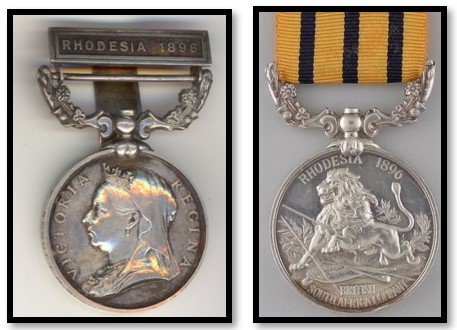
Wikipedia: Obverse Reverse
The medal was manufactured in Birmingham by Heaton and Company. The obverse has a left facing profile of Queen Victoria with Victoria Regina around the edge. The reverse was designed by Richard Caton Woodville and shows a charging lion that has been wounded in the chest by an assegai. Native weapons and a shield are shown with the inscription: BRITISH SOUTH AFRICA COMPANY
The final march on Bulawayo
Only the last part of the article Breaking the Power of Lobengula (P13 – 21) in the Occupation Souvenir is reproduced here from the diary kept by G.D. Gisborne of Filabusi, one of the veterans above. The campaign is covered in detail, mostly under Masvingo Province, but also Matabeleland South Province on the website www.zimfieldguide.com
The Battle of Bembesi (Egodade)[1] on 1 November 1893 resulted in the death of Thompson (C Troop) three men badly wounded (Carey, Silbert, Calcroft) and four slightly wounded (Crewe, Barnard, Wack and another) with an estimated 500 to 1,000 amaNdebele losses. The Columns stayed in readiness all night, but no further attack occurred.
Next day the Columns moved towards Ntaba Induna, about six miles (10 kms) away with a quiet night except for the deaths of Troopers W.M. Carey and J. Silbert who dies of their wounds and were buried next day before the Columns moved on. Within two miles the alarm was sounded and a laager formed. AmaNdebele had appeared in force in the bush around Ntaba Induna and were fired upon by C Troop under Captain J.A. Spreckley. The seven-pounder opened up on them and they melted away.
Then James Fairbairn rode in from Bulawayo and said the royal kraal was on fire and that Lobengula had fled north. Orders were given to trek, ‘horses in’ sounded on the bugle and the Columns moved off about 1pm on 3 November. Soon Ntaba Induna was passed, the Columns protected in the thick bush by strong flanking and advance parties.
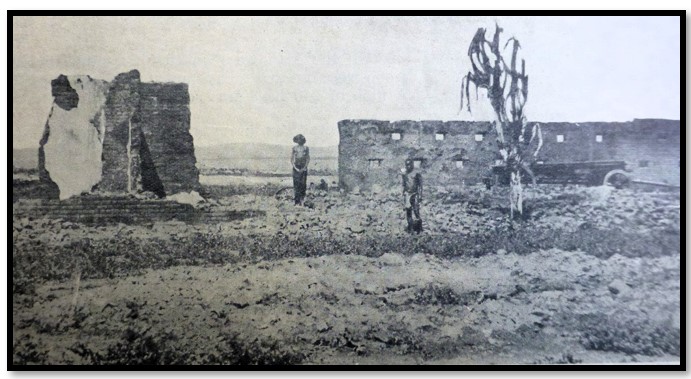
The photo shows the powder magazine and wagon shed at the royal kraal after Lobengula had given orders for them to be blown up
When the Columns halted for the night they were about seven miles (11 kms) from Bulawayo. In the morning they trekked on, negotiating the steep drift at the Umgusa river was slow and at about 2pm the Columns were in Bulawayo and laagered on either side of Johan Colenbrander’s store. The diary states, “on arrival it was found that the greater part of Bulawayo had been burned and the remainder was still in flames. The King's kraal had been completely destroyed and no natives were to be seen.” Cpl S. Calcroft died shortly after the Columns arrived at Bulawayo.

Molly Colenbrander outside her Bulawayo home
The men of the Salisbury and Victoria Columns then settled down to await the Southern Column under Goold-Adams that arrived on 11 November. Despite a letter from Lobengula that arrived stating that he and his men were all sick and anxious to give themselves up, asking what to do, Dr Jameson believed it was simply a delaying tactic to allow Lobengula to travel northwards and here Gisborne’s diary ends.
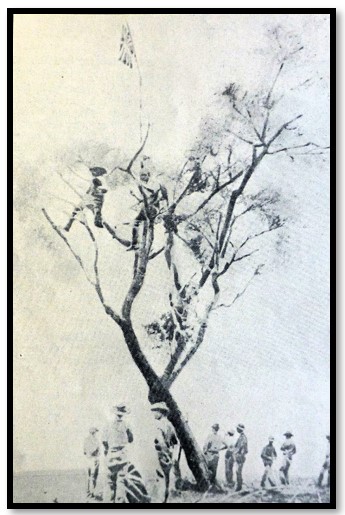
Hoisting the British South Africa Company flag immediately after the Columns reached Bulawayo on 4 November 1893
Reference
Occupation of Matabeleland: A Souvenir. November 1933
[1] See the article Battle of Bembesi (called Egodade by the amaNdebele) on the 1 November 1893 under Matabeleland South on the website www.zimfieldguide.com
